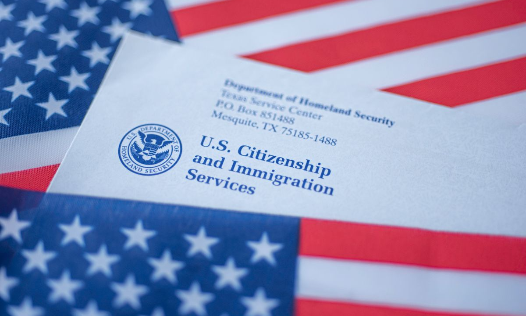Payment is being processed. Please do not refresh or close this page until your payment is complete.
 Book an Appointment
Book an Appointment

USCIS has started issuing Requests for Evidence (RFEs) in H-1B and I-140 visa cases asking for residential addresses and biometric data. Immigration attorneys call this shift unprecedented, raising concerns about legal transparency and data privacy.
In a surprising turn, US immigration authorities have started issuing Requests for Evidence (RFEs) in employment-based visa cases, notably the H-1B Visa and I-140 immigrant petitions. These new RFEs demand home addresses and biometric data, a request that immigration attorneys call highly unusual and concerning.
This latest move by U.S. Citizenship and Immigration Services (USCIS) has sparked questions about the agency’s intent, transparency, and legal procedures.
What Is a Request for Evidence (RFE)?
A Request for Evidence (RFE) is a formal notice from USCIS asking for additional documents or clarification before deciding on a visa petition. Typically, RFEs focus on missing eligibility requirements, like educational credentials, employer details, or financial evidence.
However, in this recent wave, RFEs are requesting something entirely different: the beneficiary’s residential address and biometric data. This shift marks an unprecedented change in employment-based visa processing, and it has the immigration community on edge.
Sudden RFEs Alarm Immigration Attorneys
Attorneys representing both employers and foreign workers report a wave of RFEs asking for updated home addresses and citing the need to collect biometric data. These notices reference “potentially adverse information”, but do not explain what that information might be.
Furthermore, the RFEs also fail to explain the nature of the adverse information, leaving employers and attorneys in the dark.”
Concerns Over Transparency & Legal Rights
Immigration professionals say the RFEs are unprecedented in scope and raise serious concerns about privacy and due process. Typically, biometrics, fingerprints, photos, and digital signatures are required only for certain categories, such as asylum seekers or green card applicants.
The lack of clarity in these new notices is fueling anxiety among visa applicants and their legal counsel.
Legal Experts Advise Caution
Immigration attorneys are urging recipients not to immediately comply. Instead, they recommend requesting full disclosure of any derogatory information being used by USCIS.
Goel advises citing 8 CFR 103.2(b)(16)(i), a regulation that requires the agency to share any negative evidence it relies on when making a decision.
Impact on Employers, Students & Tech Talent
The RFEs come at a time when employers and universities are already grappling with visa limitations and backlogs. According to Forbes, over 240 U.S. colleges have reported that more than 1,550 international students and graduates face legal status disruptions.
A study by the National Foundation for American Policy also revealed that a European teenager is four times more likely to get a seasonal work visa than a foreign graduate student in artificial intelligence is to secure an H-1B.
Who Might Receive These New RFEs?
The individuals most likely to be affected include:
• H-1B visa holders and applicants
• I-140 employment-based green card applicants
• Employers sponsoring foreign workers
• Recent international graduates in STEM fields
What Should Visa Applicants Do?
If you or your employer receives a Request for Evidence (RFE) requesting your address and biometrics, here’s what to consider:
• Do not respond without legal advice
• Request USCIS to disclose the alleged adverse information
• Consult an immigration attorney immediately
• Ensure all existing records are accurate and up to date
Final Thoughts
The unexpected issuance of RFEs demanding biometric data and home addresses has introduced new challenges for employment-based visa applicants in the U.S. With no clear precedent or justification, immigration attorneys urge caution and strategic legal responses.
For foreign professionals and students eyeing the American dream, this development signals the need for greater vigilance and legal awareness in a shifting immigration landscape.
Source: https://travelobiz.com/h1b-visa-uscis-biometrics-address-request-for-evidence/